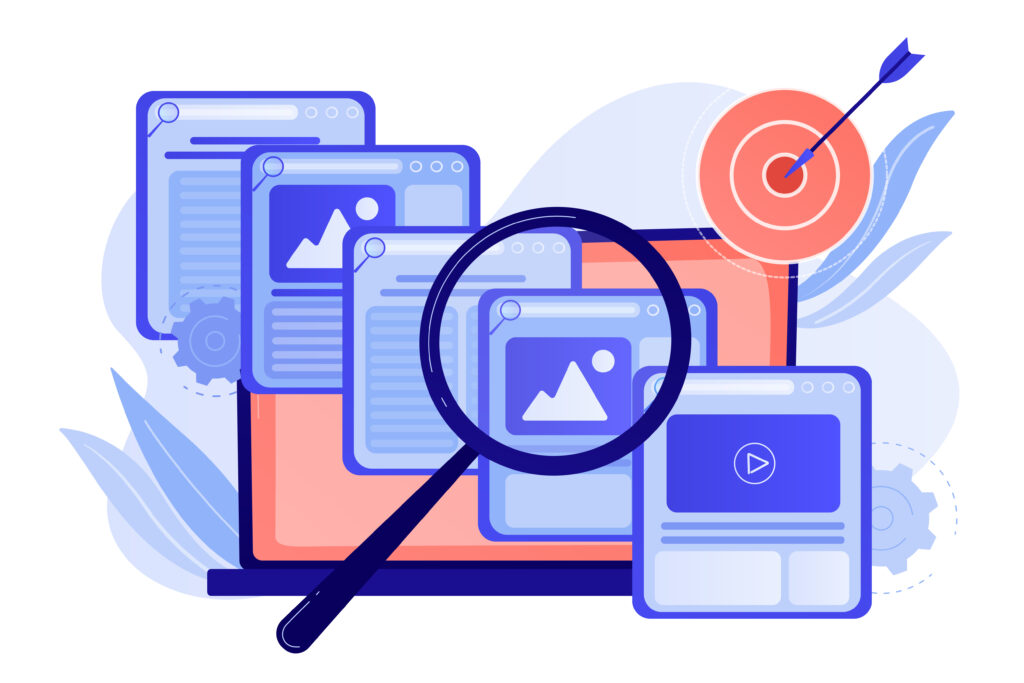Blogging has become an increasingly popular way for individuals to express their thoughts, share their expertise, and even generate income.
As more people turn to the internet for information, entertainment, and solutions to their problems, the demand for high-quality, engaging content continues to grow.
If you’re considering starting a blog with the goal of making money, one of the first questions you might ask is,
In this post, we cover...
ToggleHow many blog posts do I need to make money?
The answer to this question depends on various factors, such as the monetization strategies you choose, the quality and relevance of your content, and the size of your target audience.
In this article, we’ll explore the requirements for Google AdSense approval, the potential of affiliate marketing, and other income streams for bloggers. We’ll also discuss the importance of quality over quantity and the significance of consistency and persistence in building a successful blogging business.
Choosing a Niche
Before you dive headfirst into the world of blogging and ask for How many blog posts to make money, it’s crucial to choose a niche that not only interests you but also has the potential to attract an audience.
Think about your passions, expertise, and the topics that keep you up at night. Remember, the more specific your niche, the easier it will be to stand out in a crowded digital landscape.

Setting Up Your Blog
Once you’ve settled on your niche, it’s time to set up your blog. Choose a reliable blogging platform, pick a catchy domain name, and select a clean, user-friendly theme. Don’t worry if it’s not perfect right away – you can always make improvements as you go along.
Google AdSense Approval Requirements
One of the most popular ways to monetize a blog is through Google AdSense, a program that allows you to display ads on your website and earn a share of the revenue generated from clicks or impressions.
To be eligible for Google AdSense, your blog must meet certain criteria, including a minimum number of blog posts and a minimum word count per post.

According to Google’s policies, you need to have at least 10 blog posts with a minimum of 500 words each to be considered for AdSense approval. This requirement ensures that your blog has a sufficient amount of content for Google’s bots to crawl and evaluate.
Once your blog meets these criteria and is approved for AdSense, you can start displaying ads and earning money for each click or impression. It’s important to note that simply having 10 blog posts is not enough to guarantee AdSense approval.
Your content must also be high-quality, relevant, and engaging to attract readers and potential advertisers. Additionally, you should aim to post consistently to maintain a steady flow of new content and keep your readers engaged.
Affiliate Marketing
Another popular way to earn money from your blog is through affiliate marketing. This involves promoting products or services offered by other companies and earning a commission for each sale or lead generated through your unique affiliate link.
Unlike AdSense, which requires a minimum number of blog posts, affiliate marketing can be started with just one blog post. Many bloggers find success with affiliate marketing by creating product reviews, tutorials, or roundups that showcase relevant products or services.

By providing valuable information and recommendations to their readers, they can earn a commission without having to create or store physical products themselves.
To succeed with affiliate marketing, it’s important to choose products or services that align with your blog’s niche and target audience.
You should also disclose your affiliate relationships to your readers and only promote products or services that you genuinely believe in and would recommend to your friends or family.
Other Income Streams for Bloggers
While AdSense and affiliate marketing are two of the most common ways to earn money from a blog, there are several other income streams that bloggers can explore:
- Sponsored content: Brands may pay you to create content that promotes their products or services, such as sponsored posts, product placements, or social media mentions.
- Selling digital products: You can create and sell your own digital products, such as e-books, courses, or templates, to generate passive income.
- Offering services: If you have expertise in a particular area, you can offer services such as consulting, coaching, or freelance writing to your readers.
- Membership programs: You can create a members-only area of your blog that offers exclusive content, discounts, or community features for a monthly or annual fee.
Each of these income streams has its own unique requirements and strategies, so it’s important to research and experiment to find the ones that work best for your blog and your audience.
The Power of High-Quality Content
High-quality content serves as the cornerstone of a successful blog. Here’s how it fuels your blog’s earning potential:
- Boosts Search Engine Optimization (SEO): Well-researched, informative content optimized with relevant keywords attracts search engines like Google. This increases your blog’s visibility, driving organic traffic – potential readers who actively seek information you provide.
- Establishes Expertise and Trust: Sharing valuable insights positions you as a thought leader in your niche. As your audience recognizes your expertise, they’re more likely to trust your recommendations and engage with monetization strategies like affiliate marketing or sponsored content.
- Encourages Reader Engagement: Compelling content keeps readers hooked, prompting them to subscribe, share your posts, and leave comments. This engagement fosters a loyal readership – the lifeblood of any successful blog.
Quality vs. Quantity in Blogging
When it comes to making money from a blog, it’s important to strike a balance between quality and quantity.
While having a large number of blog posts can help you attract more readers and rank higher in search engine results, the quality of your content is ultimately what will keep readers engaged and coming back for more.

To create high-quality content, focus on providing value to your readers by addressing their pain points, answering their questions, or offering unique insights and perspectives.
Use clear, concise language, break up your content with headings and subheadings, and include visuals such as images or videos to make your content more engaging and memorable.
At the same time, it’s important to be consistent with your posting schedule. Aim to post new content on a regular basis, whether it’s once a week or once a month, to keep your readers engaged and coming back for more.
You can use content planning tools or editorial calendars to help you stay organized and on track with your posting schedule.
Consistency and Persistence in Blogging
Building a successful blogging business takes time, effort, and persistence. It’s important to set realistic goals for your blog and to track your progress over time.
This might include setting targets for the number of blog posts you want to publish each month, the amount of traffic you want to attract to your site, or the income you want to generate from your blog.
As you work towards your goals, it’s important to stay motivated and to overcome any challenges or setbacks that come your way.

This might involve learning new skills, experimenting with different strategies, or seeking support and advice from other bloggers or mentors.
Remember that success in blogging is not an overnight phenomenon. It takes time to build an audience, establish your brand, and generate consistent income from your blog.
However, with dedication, persistence, and a commitment to providing value to your readers, you can build a successful blogging business that generates income for years to come.
Scaling Your Blog Business
Outsourcing Content Creation
As your blog grows, consider outsourcing some content creation to free up your time for strategic tasks. Hire skilled writers who can maintain your blog’s voice and quality standards.
Expanding to Multiple Blogs
Once you’ve mastered monetizing one blog, you might consider starting additional blogs in different niches to diversify your income further.
Conclusion
In conclusion, the number of blog posts you need to make money depends on a variety of factors, including your monetization strategies, the quality of your content, and the size of your target audience.
While having a minimum of 10 blog posts with at least 500 words each is required for Google AdSense approval, there are many other ways to earn money from your blog, such as affiliate marketing, sponsored content, and selling digital products.
Basically the answer to How many blog posts do I need to make money? is unfortunately, isn’t a magic number etched in stone.
It’s more akin to a delicious recipe where quality ingredients (content), consistent preparation (posting schedule), and effective marketing strategies (traffic generation) all play a vital role in the final outcome – your blog’s earning potential.
To succeed in blogging, focus on creating high-quality, engaging content that provides value to your readers. Be consistent with your posting schedule, track your progress, and stay motivated in the face of challenges.
With dedication and persistence, you can build a successful blogging business that generates income for years to come.
FAQs
How long does it take to start earning money from a blog?
The time it takes to start earning money from a blog varies depending on your monetization strategies, the quality of your content, and the size of your target audience.
Some bloggers may start earning money within a few months, while others may take a year or more to build a sustainable income stream.
Can I make a living solely from blogging?
Yes, it is possible to make a living solely from blogging, but it requires a significant amount of time, effort, and persistence.
Successful full-time bloggers typically have a large audience, multiple income streams, and a strong brand presence.
What are the best topics to blog about for making money?
The best topics to blog about for making money are those that align with your interests and expertise, and that have a large potential audience. Popular niches include personal finance, health and wellness, parenting, and technology.
How do I promote my blog to increase traffic and earnings?
There are many ways to promote your blog and increase traffic, such as search engine optimization (SEO), social media marketing, guest posting, and email marketing.
The most effective strategies will depend on your target audience and the type of content you create.
What are the common mistakes to avoid when blogging for money?
Some common mistakes to avoid when blogging for money include publishing low-quality content, inconsistent posting, not disclosing affiliate relationships, and not tracking your progress or adjusting your strategies based on data.




5 Responses
Thanks for sharing. I read many of your blog posts, cool, your blog is very good.
Thank you so much!
Thanks for sharing. I read many of your blog posts, cool, your blog is very good.
Thank you so much keep visiting us